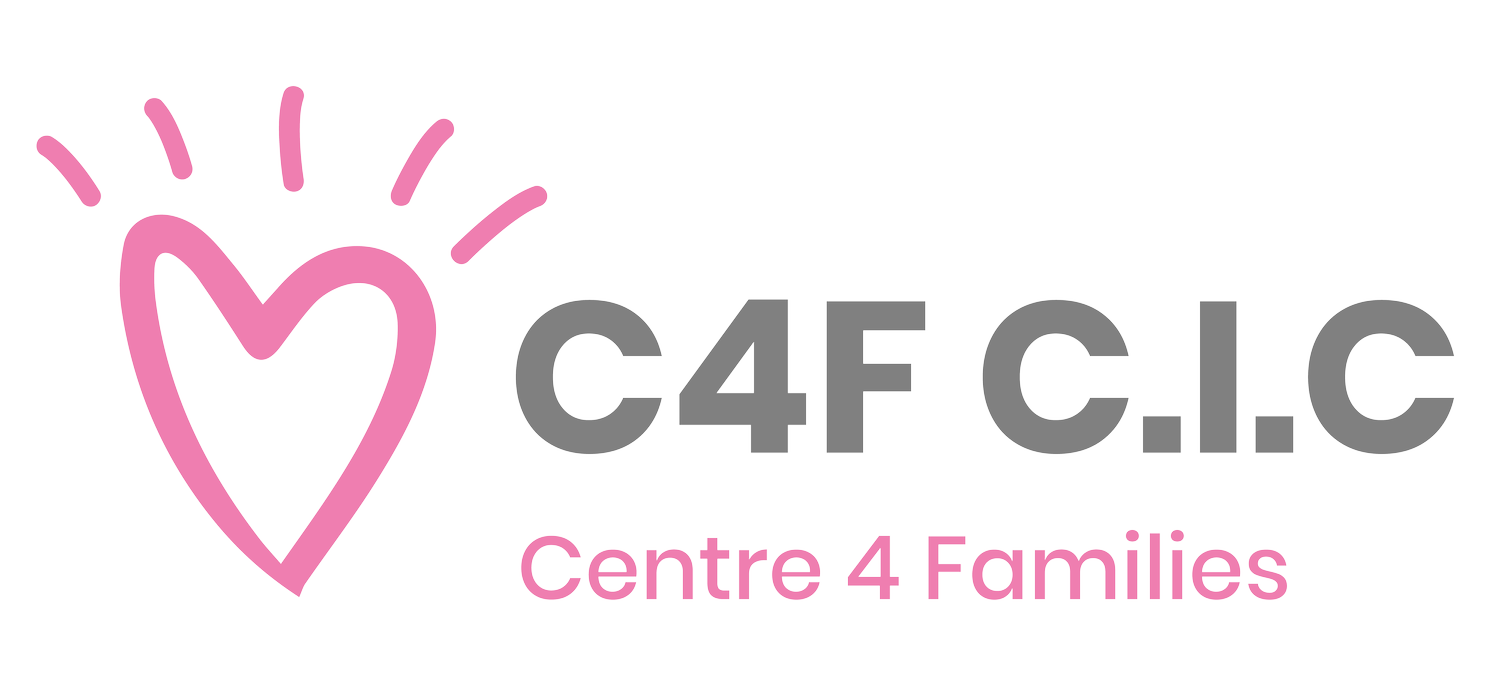Terms and Conditions of Contact.
Rules of the Centre/Terms and Conditions of Contact
Agreement for supervised contact centres/services
Introduction:
This document describes what has been agreed regarding the arrangements for contact or the delivery of a service. It has been drawn up to ensure:
• The safety, welfare, interests, and development of children are always put first.
• The contact or service is delivered in a planned, carefully coordinated, and structured way.
• All of the parties involved in the process are aware of what is required of them and when.
The document needs to be agreed with, sent to, and signed by the family, the service provider and referring agency in advance of any contact taking place or service being delivered.
Provision also needs to be made for the case to be reviewed at intervals agreed with the referring agency.
The Plan: Referring agency
• Nature of contact or service being provided:
Please tick:
Indirect Contact:
Supervised contact (Observed, Recorded and Reported) ______________________
Supervised Outreach contact: (Observed, Recorded and Reported) _____________
Supported contact (No notes provided, observed only) _______________________
Supported outreach contact (observed no notes given). ______________________
Every Child Matters
Change for Children Every Child Matters sets out five outcomes that matter
most to children and young people.
These need to be recognised and worked towards by the referring agency, the workers delivering thecontact/service and the family.
They are as follows:
Be Healthy The contact process or programme of work should help parents put aside their own
differences and concentrate upon:
• Recognising their child(ren)’s needs in relation to health and development.
• Improving upon the way in which they meet these needs.
• Identifying improvements in their child(ren)’s physical health and emotional wellbeing Staying Safe
The contact process or programme of work must be delivered in a way that allows for:
• Any risks to the children to be identified and protective measures put in place to address them.
• A parent’s ability to cope with difficult situations and safeguard the children to be assessed and improved upon if required.
• Children know about risks to their safety and how they should be managed.
• Children to feel safe
• The safety and quality of family life to be improved. Enjoy and achieve the contact process orprogramme of work should help the child(ren) by allowing them to:
• Develop a better awareness, knowledge and understanding of their family including any diversity needs.
• Meet and play with different members of their family in a way that contributes to their wellbeing and development
• Develop meaningful and lasting relationships within and outside of their family
• Improve upon their achievements within school, further education, training or employment. Making a positive contribution Where their age and level of understanding allows the contact process or programme of work should provide for children to:
• Have their views sought after and heard.
• Contribute to any decision-making process.
• Make informed choices.
• Improve upon their social skills
Manage changes within their lives more effectively.
Achieve economic wellbeing.
The contact process of programme of work should encourage parents to work together in a way that
puts their child(ren)’s interests first and:
• Maximises the family income
• Improves living conditions
• Provides continuity and stability.
Additional Information
1. Changes to what has been agreed can only be made after consultation with the referring agency that requested the contact/service.
2. If anybody involved in the contact process or the recipient of a service is unable to keep an appointment, they should notify the service provider immediately.
3. Children should not be put in a position where they feel uncertain or become distressed. This means parents should arrive on time and behave towards one another in a calm and responsible way.
4. Failure to arrive within fifteen minutes of the agreed meeting time will result in the session being cancelled and the children returning home. A pattern of delayed or late arrivals is likely to be considered as being prejudicial to the children’s well- being and result in the contact or service being suspended and the case being referred to the referring agency who made the initial referral.
5. Records will be kept of the contact, or the service being provided. A copy of these will be forwarded to the referring agency that requested the contact/service within an agreed period of time.
6. Parents will be given the forms relating to the recording of information for the service their family is receiving.
7. Although family members have the right to see their own files, the need to protect the safety and confidentiality of others means they will not be able to access information about a third party such as their former partner, children or any other agency involved with the family
8. If a concern arises relating to the abuse or neglect of any children involved in the contact or service, a referral will be made to the Children’s Services Department responsible for the area in which the children live.
9. Every family using a centre/service will be made aware of and expected to abide by its rules.
10. A family’s progress whilst using the centre/service will be reviewed at agreed intervals. The family will be made aware of and invited to take part in these reviews.
Legislation:
C4F is established as a community interest company. C4F is required to abide by certain UK,
European Union, and international Legislation. C4F are required to comply with:
1. The data protection act 2018 including GDPR.
2. The data protection order 2000 (Sensitive and personal data)
3. The copyright, designs, and patents act 1988
4. The computer misuse act 1990
5. The Health and Safety work act 1974
6. Human rights act 1998
7. Freedom of information act 2000
Supervisor Obligation:
The word “Supervisor” refers to those providing a service within C4F where they are either supervising or supporting a client’s contact session. All Supervisors have an enhanced DBS Check and hold a variety of qualifications to support their role at C4F. NACCC provide online co-ordinator training which is available to all staff including a range of online courses.
Any information shared by parents/carers with the supervisor and C4F is treated as confidential unless a safeguarding concern is disclosed. Client details will not be passed on to other parties unless specifically requested. E.g., forwarding reports to other professionals.
C4F will endeavour to provide the same supervisor to the family, particularly with supervised contact however with supported contact this may be a different supervisor each session.
If a safeguarding concern is raised, all supervisors have a duty of care to report this externally if appropriate.
All paperwork and reports are secured and stored by C4F.
Resident and Non-Resident will be required to sign C4F ground rules.
C4F’s role is to facilitate contact between parent and child/ren. We are a non-biased service and do
not offer mediation services. Please do not make requests for C4F to make calls/ send emails on
behalf of either party.
Visitation times:
Visiting parent must arrive 15 minutes prior to the session starting. Please be aware if there is no contact advising lateness and the child/ren arrives with no visiting parent in the centre, contact will be cancelled by C4F.
Visiting parent must wait 15 minutes after the child/ren leave the centre.
We ask you to be respectful of other parent’s time and ensure the room is returned to original state by the end of your session.
Conduct towards Staff:
Any person displaying violence, bad language, intimidation or aggression inside or directly outside of the contact centre will automatically lose their place at the centre.
Devices:
Videoing is not allowed on our premises. Photographs are only permitted in the presence of and permission of staff and if agreed by the resident parent. For Child protection and safeguarding reasons no photographs of other children, adults and staff should be taken whilst at the centre.
Adding photographs on social media platforms are strictly forbidden and should C4F be advised of this. Parents will be asked to hand mobile phones into the office.
Prices:
All prices are available upon request detailing the services provided by C4F.
Payment Terms:
Payment is required to be made online from an invoice from C4F. All fees must be paid and reach our account 48 hours prior to contact. The latest 4pm day before contact. If payment is not reached contact will be cancelled.
C4F uses a third-party payment platform called Scopay to process credit and debit card transactions on site.
If you process and online transaction you are responsible for verifying that the transaction was successfully processed. You must not process stolen cards or unauthorised cards to pay for C4F services.
Cancellations:
We recognise that things happen which can prevent contact taking place. However, it is also the case that the centre incurs costs by offering or planning to offer a service. With this in mind, we will offer a full refund where we are informed about the need to cancel a session, no less than 48 hours prior to the planned session taking place. Supervised contact reports:
For our Supervised sessions a report is provided. Unless there is a factual error these reports cannot be edited after they have been shared with parents/carers or other professional.
C4F have 2 working days to complete and send reports out.
Supported Contact:
There are no written reports for supported contact. Any safeguarding concerns will be reported and documented.
Outreach contact:
This is to be agreed by both parties. C4F expect a minimum of 48 hours’ notice prior to the session of the plans for the session. Please note moving to outreach sessions does not automatically mean you will have a room available for you at the centre. If you require a room at the centre this will need to be booked. Transporting the children via C4F vehicle or Non-Resident parent need to be agreed prior to contact.
Virtual calls:
Upon agreement of a virtual call by both parties it must be understood that if parties are not in C4F building they need to be mindful that C4F cannot control if resident parent is in the same room as the child/ren and if they chose not to be at home during the allotted time for the virtual.
Handovers:
This is to be agreed by both parties an agreed time for Handovers within C4F working hours. Both parties are to sign a handover agreement. It is advised at this stage parents use APPCLOSE www.appclose.com to communicate regarding the children.
Complaints:
If you are unhappy with the services at C4F please contact the centre manager directly who will do her best to resolve any issues.
Please report the complaint to info@c4f.co.uk.
Refunds:
Unfortunately, we are unable to offer refunds for services inside 48 hours’ notice due to the preparation and time that goes into planning each session. A refund will only be granted in exceptional circumstances.
General:
Further policies and procedures of C4F can be found on our website or sent as a PDF document on request.
C4F also offer Advocacy work, Caring dads programme, Family links, Appropriate adult, Staff are also trained to facilitate Drugs and Alcohol testing.
(These are at an additional fee)
The above has been seen and agreed by the;
Service provider: C4F
Name: Samantha Bradley

